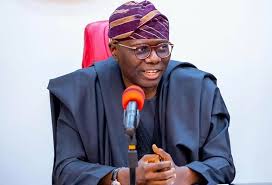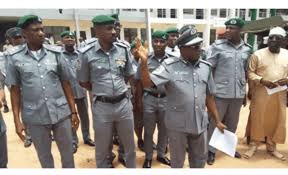In the last one week or so, some very eminent Nigerians, either individually or in groups, have issued statements on the unacceptable state of the nation. These are men who have paid their dues to the country as public officers and in their various professional capacities in the military, the civil service and the academia. They are not men who can mistake a pussy cat for a wolf. Nor are they men who want to hug the limelight. They have hugged the limelight for most of their lives. They are patriotic and responsible men for whom it would be the height of irresponsibility to seal their lips when the nation is in dire straits. They speak out because they find it unacceptable that the president and his men and women choose to live in denial while our nation is burning and bleeding.
I am reproducing some of those statements here in case the president’s men failed to draw his attention to them. The first statement came from former President Olusegun Obasanjo, who spoke at a Consultative Dialogue of Nigeria’s Socio-Cultural Political Organisations on the State of the Nation in Abuja. His audience was made up of Northern Elders Forum, Afenifere, Middle Belt Forum, Ohanaeze Ndigbo and Pan Niger Delta Forum. These are serious-minded groups who, worried about where we are and wonder where we are going as a nation, engaged the former president in the dialogue to offer their collective and informed views on how to stop the nation from heading into the pit of hell.
Here is what Chief Obasanjo said: “I do appreciate that you all feel sad and embarrassed as most of us feel as Nigerians with the situation we find ourselves in. Today, Nigeria is fast drifting to a failed and badly divided state; economically our country is becoming a basket case and poverty capital of the world, and socially, we are firming up as an unwholesome and insecure country.
“And these manifestations are the products of recent mismanagement of diversity and socio-economic development of our country. Old fault lines that were disappearing have opened up in greater fissures and with drums of hatred, disintegration and separation and accompanying choruses being heard loud and clear almost everywhere.”
The president kept mum.
The Chief of Army Staff, Lt General Tukur Buratai, was in Osun state recently to commission some projects at Kuta and Asamu. Lt-General Alani Akinrinade, former chief of army/defence staff, spoke at the occasion. He sent a message to the president through the army chief.
This was part of what he said: “Please grant me the indulgence to mention to him one or two matters that throw me into distress because of my association with him.
“The first is this pervasive belief that he is an ethnic bigot, an irredeemable religious fundamentalist, that he firmly subscribes and promotes the possibility of his ethnic Fulani to take over the country, the reason he does not interfere in curbing brigandage of the Fulani herdsmen, that he has performed woefully in the fight against the terrorist Boko Haram and that he cannot rise to the occasion when it comes to reflecting the heterogenous composition of our country when it comes to appointments to sensitive positions in his government.
“He can take better counsel in the appointments to the sensitive parts of his government. There are capable and loyal men and women from every village in the country.
“He needs to stand on the table against the motley crowd of advisers surrounding him and take a firm stand on the re-organisation of our country physically, politically, economically and socially. It is long overdue and over flogged..”
The president kept mum.
The Nigerian Working Group on Peacebuilding and Governance called for dialogue to save the country. The group parades eminent men and women such as Cardinal John Onaiyekan, General Martin Luther Agwai, former chief of defence staff, Professor Attahiru Jega, former INEC chairman, Ambassador Fatima Balla. Professor Jibrin Ibrahim, Aisha Mohammed Oyebode, Nguyan Shaku Feese, Dr Usman Bugaje and Chris Kwaja.
These were some of the points raised by the group about the state of the nation under Buhari’s watch:
“Our country is rapidly approaching a tipping point. Enough is enough. The time for action is NOW!
“In our federal system, Nigeria’s state and local governments are the closest to the people. However, increasing insecurity across the country raises questions about the ability of the country’s security architecture to manage the multiple security challenges at the state and local levels. Criminality in rural areas further complicates the situation by undermining food security, as many farmers have been unable to go to their farms for months for fear of losing their lives.
“The government has been incapable of assuring Nigerians that it cares about our predicament. Numerous conspiracy theories about the causes of the violence continue to circulate, without any reassuring counter narratives coming from the government. .. many have lost faith in public officials and security agencies. Several communities have resorted to taking up arms to protect their lives and property from marauding criminals, while security agencies look on overwhelmed.
“There is a growing public consensus that the current leadership of our security agencies have failed woefully, and that our commander-in-chief has so far refused to act. This cannot continue. Mr President, you must show more concern and do what is necessary to improve the effectiveness of our security agencies, even if it means replacing the current leadership of our security agencies.”
The president kept mum.
Professor Wole Soyinka said: “The ongoing governance posture of aggressive evasion spells only one end: collective suicide.”
Eighteen members of the British parliament chipped in with a letter to the secretary-general of the Commonwealth on the security situation in our country. They wrote: “We write to highlight urgent concerns about escalating violence in Nigeria, where attacks led by Boko Haram, Fulani herders, and other Islamist militia continue in northern and central-belt states, with reports of increasing violence in the South-East.
“The state’s failure to protect its citizens is a clear breach of its obligations under the Commonwealth Charter in respect of human rights.”
And the president does not bestir himself.
These people and groups made their views known in the time-honoured doctrine of collective responsibility, to wit, while one man heads a government, the success of every government is a collective responsibility imposed on all citizens. Their views may be ignored in the cynical, if self-righteous belief, that they are mere noise-makers who deserve to be treated with contempt. That would be a big pity. It is not just a shame, it is an outrageous shame, that 60 good years of independence still find our nation at this very sorry pass where the government cannot protect its citizens from a slew of criminal elements who hold sway in every part of the country. To pretend that we are not drifting towards a failed state or a deeply divided country takes living in denial to the next level. Time now to admit that we have problems. That is the first step towards finding solutions to them.
Democracy is a system of governance that derives its legitimacy from promoting constant dialogue between those who govern and those who are governed and among those who are governed. The idea that a government has the monopoly of wisdom is strange to democracy. Omniscience is not one of the attributes of political leadership.
To repeat the obvious: the fate of our country is in the hands of President Muhammadu Buhari. It is he who can take steps to stop our country from “fast drifting to a failed state.” And it is he who can take determined steps to stop our country from “rapidly approaching a tipping point.” He has to listen less to his aides and more to the sane, responsible and patriotic voices of eminent men and women. History is watching; so are we.
Email: [email protected]
SMS: 08055001912




